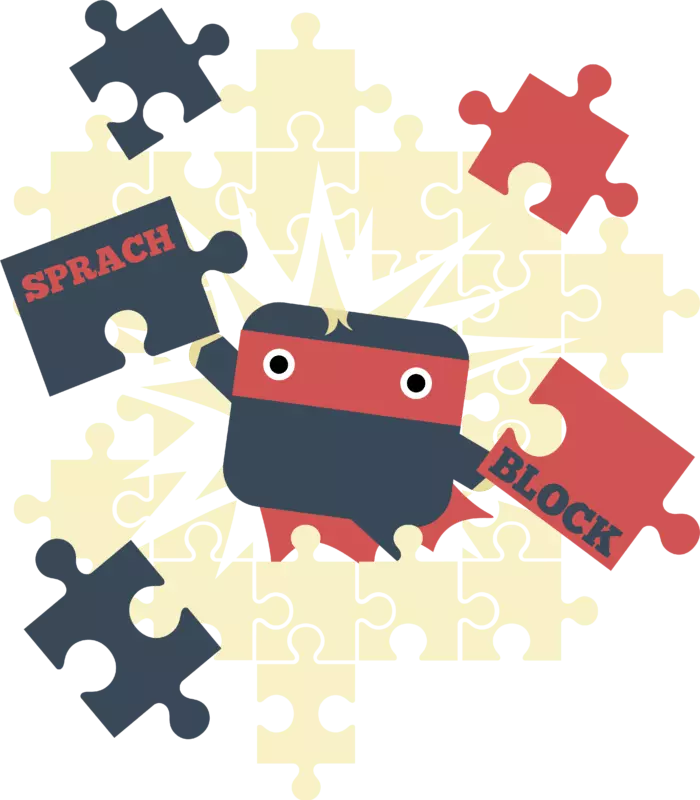The German language is the most common native language in Europe, and with its location at the heart of Europe.
If you are learning German for your career, you have made a wise decision. German industry, research and business are famous around the world for innovative products. German industry solves simple problems with simple products, no matter if it’s an impressive Mercedes or a practical pencil.
But that is not the only reason to discover German, as this language looks back on a unique history of philosophy, music, poetry, and art you can charm your love with.
And finally, German speakers know how to party. Berlin is famous around the world for its parties, Vienna invites you to a glamorous ball, and of course you would never miss the Oktoberfest itself.
Just one thing needs to be done: Learn that German language! I have been a German teacher for seven years and taught the language to thousands of people through my online courses.

If you are worried about how long it does take to learn German, don´t be it! Obviously, it is going to take some time (and not only three weeks) and effort, but with the right approach and effective strategies you are going to make fast progress.
To help you to learn German fast and effective I´m giving you my five smartest tips for anyone who wants to master the German language.

Tip 1: Learn the pronunciation of the German language early!
You may think that learning pronunciation is just a tool for getting a great accent and impressing more native speaker. But when it comes to this language, getting your pronunciation right can be even more helpful.
German is an extremely consistent language when it comes to phonetics, so that every pronunciation rule you learn can also help you spell a word and visualize it.
When you read German after learning just a few of these rules, you will be surprised by how easy it becomes to memorize new vocabulary now that you know how each sound looks on the page.
Example: The German letter ß is pronounced like a non-voiced (hissy) s. It only shows up after vowels which are stretched, and this automatically gives you a hint of how to say words like Straße and groß.
Videos about the German pronunciation you can find at YouTube. Here is one I did about “How to Pronounce the Letter R in German?”.
Sie sehen gerade einen Platzhalterinhalt von Youtube. Um auf den eigentlichen Inhalt zuzugreifen, klicken Sie auf die Schaltfläche unten. Bitte beachten Sie, dass dabei Daten an Drittanbieter weitergegeben werden.
Mehr InformationenTip 2: Become very clear about your German goals.
I have worked with many language learners as a coach, and there is one thing that always separates a fast and effective learner from one who will struggle: the goals.
Successful language learners often understand that they need to work with two types of goals:
- The Vision Goal, which is about your dreams and aspirations for success as a German learner. What do you want to do, who do you want to become with German?
- The Path Goal, which is specific and measurable, and changes often when you hit a milestone like finishing a course or completing a number of online lessons.
The key to setting a good path goal is to break it into 4 core skills: listening, speaking, reading and writing. You can read more about this on my blog article about setting helpful goals.

Tip 3: Learn with stories and interesting dialogues.
Many people think that they have to wait until they understand hundreds of words before they could try to read natural texts in German. But that’s not true, you don´t need a lot of German vocabulary to start reading!
In fact, the more comprehensible input (a phrase taken from the research of Dr Stephen Krashen) you have as a German learner, the faster you will learn.
This means you can put away the textbook and instead search for an interesting storybook or dialogue that suits you as a learner.
How to find these suitable texts? Look for „learning with stories“, „graded readers“, „Deutsch für Beginner“ (German for beginners) online. You can also use software like LingQ to help you with unknown words.
Tip 4: Speak to native German speakers as soon as possible.
If you want to speak German to native speakers, the best thing you can do is to start speaking German to native speakers. Now.
This may sound scary, but trust me when I tell you that you can find incredible people online who are going to be excited to help you out. Your first stop is to look for a language tutor. You can ask in online forums or search on italki.com.
Secondly, keep an eye out for a generous exchange partner who wants to learn your native language.
If your native language is English, your exchange partner is likely to have a higher level than you. Do not let this scare you, because you can still challenge them and even ask them to explain German news stories or new music and films to you in English.

Every language exchange and tutoring partnership is built on an understanding that both partners are equals, so you never have to feel nervous because your German is a little weak at the start.
Tip 5: Respect German grammar, but don’t study it first.
The German language offers you a rich world of grammar rules and constructions. First of all, try to see this as a good thing. It’s an ordered and logical landscape with an opportunity to understand how language works.
Secondly, my advice to you is to put your grammar books away until you need them. The worst thing you can do with it is to read it from start to finish, because it would quickly become overwhelming, dull and complicated.
Start with the text instead, ideally a simple story or dialogue.
When you find something that looks interesting or logical, your mind will start wondering “why does this happen”. And then, you know you’re ready to investigate grammar questions.
This way, the boring rules-first system is broken down and you can start to learn by discovering. It’s a system that has served hundreds of students who take courses like German Uncovered and report that they can speak instantly without worrying about rules.

How to begin learning German?
If you want to learn German, you have probably done a few simple things already, like downloading an German app. This is great. Well done!
Your next steps in a nutshell are to:
- Spend time on pronunciation early on as it will pay off with the German language.
- Make sure you have set yourself smart and helpful goals.
- Find a good text or dialogue that is interesting to you.
- Start speaking to native German speakers to help you practice.
- Adopt a positive mindset and learn grammar when you need it, not when your books tell you to.
Don’t keep your German learning to yourself, and instead try to share your goals and short speaking videos on social media. If you want to tag me to show your progress after reading this article, I would love to see it!

Find me on Twitter or Instagram, and tune in to the Fluent Show podcast for weekly motivation. You can search “Fluent Show” on
apple podcasts
Spotify
TuneIn Radio
anywhere you get podcasts
Kerstin Cable was born in Germany (in the famous „Moseltal), but she’s been living in the UK since 2003. There she teaches German (amongst other languages) to students of all ages and helps them to develop a healthy language habit.
And – what do you think of my article? Did you like it? You are more than welcome to leave me a rating at this point.


